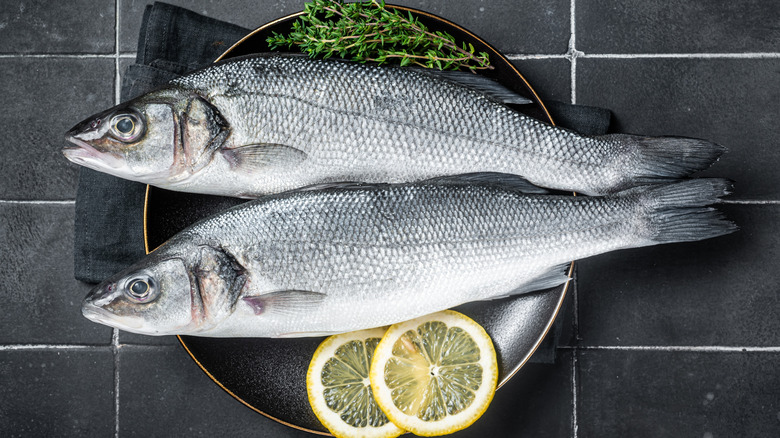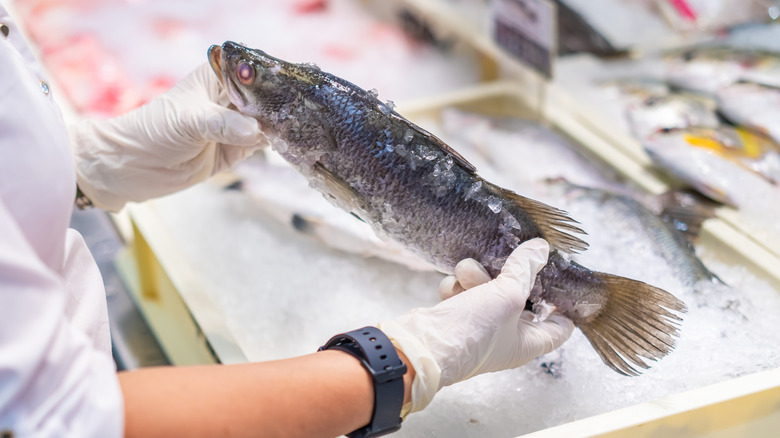Don't Forget To Ask The Fishmonger To Do This Before You Leave Whole Foods
Whole Foods gained popularity as a grocery chain for its plethora of fresh, organic options — especially with the rise in people caring about what's in their food. There are a few Whole Foods secrets you might wish you knew sooner, but we'll let you in on one: Picking up seafood from the counter comes with a number of free services, one of which is deboning the fish you purchase from there.
Deboning a fish is just what it sounds like: Removing all the bones and filleting the fish so it's ready to be cooked and consumed, including the fish's pin bones. While you can eat a fish that has not been deboned, it requires much more effort; if you're cooking for a crowd, expecting people to know how to eat a whole fish isn't the best judgement call. Just be prepared to wait a few extra minutes while the fishmonger takes care of the job, though it saves you time in the long run.
Can Whole Foods debone every type of fish?
While the grocery chain advertises deboning free of charge on its website, there could be some exceptions. Fish that are farmed, such as certain types of salmon, are almost always deboned mechanically in the form of fillets before they reach the grocer. You can still ask the fishmonger to double-check for bones in fish that have already been deboned, though fishmongers caution that small pieces breaking off from a deboning machine can be hard to spot. Keep in mind that deboning a whole fish reduces its shelf life. Fresh fish spoils quickly, even when properly stored in the fridge; a whole fish can only last about two days in the refrigerator. Once it's deboned and filleted, that shelf life is halved.
While deboned fillets are generally readily available at the grocery store, there are some fish that are better bought whole. Fish such as seabass, snapper, trout, and grouper are great to buy whole because of the way the bones provide structure and trap moisture as the fish cooks. Your fishmonger can also help answer any questions about the benefits of potentially cooking the fish whole and deboning it yourself. Some chefs claim the flavor and texture are both better on a fish that's cooked whole, but it ultimately comes down to preference and what's easier for you.

